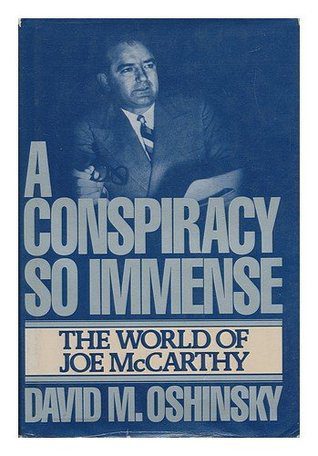 Mark Twain
Mark Twain
by Ron Chernow
1,174 pages
Penguin Press
Published: May 13, 2025
Ron Chernow’s latest, and widely-anticipated, biography of “Mark Twain” has just been released. Among his seven previous books are biographies of Alexander Hamilton, Ulysses S. Grant, John D. Rockefeller, Sr., and the Pulitzer Prize-winning biography “Washington: A Life.”
Until now, readers enchanted by Mark Twain’s folksy, irreverent charm generally relied on Justin Kaplan’s 1966 Pulitzer Prize-winner “Mr. Clemens and Mark Twain” (which I’ve not read) or Ron Powers’s more modern “Mark Twain: A Life” (which I have). Chernow’s biography, arriving two decades after Powers’s book, provides a compelling third option. But it is one that many readers will find intimidating, with a narrative that stretches a daunting (and sometimes exhausting) 1,033 pages.
Given the depth of research he conducted during the seven-plus years he worked on this biography, Chernow skillfully tracks Twain’s flurry of impulses, observations, career professions and personal relationships in significantly more detail than has been attempted before. And to a far greater extent than in his earlier biographies, Chernow allows his subject’s own words to permeate this book, adding a valuable first-person element to the narrative.
Chernow approaches Twain not as the iconic “father of American literature” (as appraised by William Faulkner) but as a flawed human with a complicated relationship between his public and private personas. The Twain featured in this encyclopedic work produced some of America’s most keen, thought-provoking, enduring and often light-hearted literature, aphorisms and witticisms…yet proves a surprisingly tragic figure.
More than half of the book’s text is devoted to chronicling Twain’s perennial lack of business judgment, contradictions in his attitude toward race and religion, his family’s chronic health problems, his creepy (but apparently chaste) fascination with young girls and his pathologic need to harbor and redeem grudges.
To his credit, Chernow does not attempt to distill Twain’s behavior into a simple thesis and, instead, embraces his complexity. In sixty-nine chapters, with a no-stone-left-unturned approach to documenting Twain’s life, Chernow assiduously but unevenly details his subject’s whirlwind of thoughts, aspirations, fascinations, insecurities, failures, foibles, accomplishments and, it seems, every journey he took anywhere.
Readers familiar with Chernow’s previous biographies will approach this book with high expectations. But this biography differs from his previous works both in terms of length (it surpasses even the weighty “Grant”) and, more importantly, in terms of narrative style and pace.
Chernow’s biography of Washington, for example, sweeps its readers almost effortlessly through an eight-hundred-page narrative which is part history, part scene-setting and part bird’s-eye-view of Washington’s life. “Mark Twain,” in contrast, presents readers with a lengthier, more dense, and much less lyrical literary journey. Twain seems no less interesting than Chernow’s previous biographical subjects, but the mustached maven somehow eludes this author’s attempt to capture his essence with the same degree of efficiency and eloquence.
The most interesting parts of Twain’s life are arguably his childhood and early adult years. But while this three-decade slice of his life is incredibly well-told and extraordinarily engaging, it accounts for less than one-fifth of the book. Just a few chapters further, the reader finds a fifty-year old Twain who is now past the peak of his personal and professional successes…and yet nearly 700 pages of text remain.
By this point, the book’s pace has slowed considerably – sometimes tediously – and the narrative primarily stands guard over the persistent, slow-motion implosion of Twain’s world with a level of granularity that often seems unnecessary.
A minor burglary at Twain’s residence – an apparent triviality – takes up nearly the same space as a discussion of the composition of “The Adventures of Tom Sawyer.” And the attention paid to Twain’s disagreement with his housekeeper is afforded treatment roughly equal to that of his four-year career as a Mississippi River steamboat apprentice and pilot.
Despite its hefty size and thorough perspective, however, Chernow’s biography offers almost no new revelations into his subject’s life. One notable exception is Twain’s interest in his “Angelfish” – a group of young girls he befriended and to whom he wrote more than 300 oddly affectionate letters, provided trinkets and occasionally around him during his later years. Chernow uncomfortably observes that nothing inappropriate has ever been alleged, and yet…
Finally, Chernow possesses a well-deserved reputation for composing fabulously fluent prose and crafting narratives so engrossing that his books scream to be read in one sitting. But while this biography of Mark Twain does much more than hint at Chernow’s literary aptitude, it does not provide the same vibrance, fluidity or literary “joie de vivre” as his previous biographies.
Overall, Ron Chernow’s “Mark Twain” is a magisterial, attentive, penetrating and sober exploration of a remarkable American personality whose public-facing humor and wit stood in contrast to an often troubled personal life. Readers blessed with time and fortitude will uncover numerous gems among these thousand-plus pages. But those expecting to find Chernow at his best – with a consistently engaging, brilliantly-hued and evenly-paced narrative – may be disappointed.
Overall rating: 4 stars
















